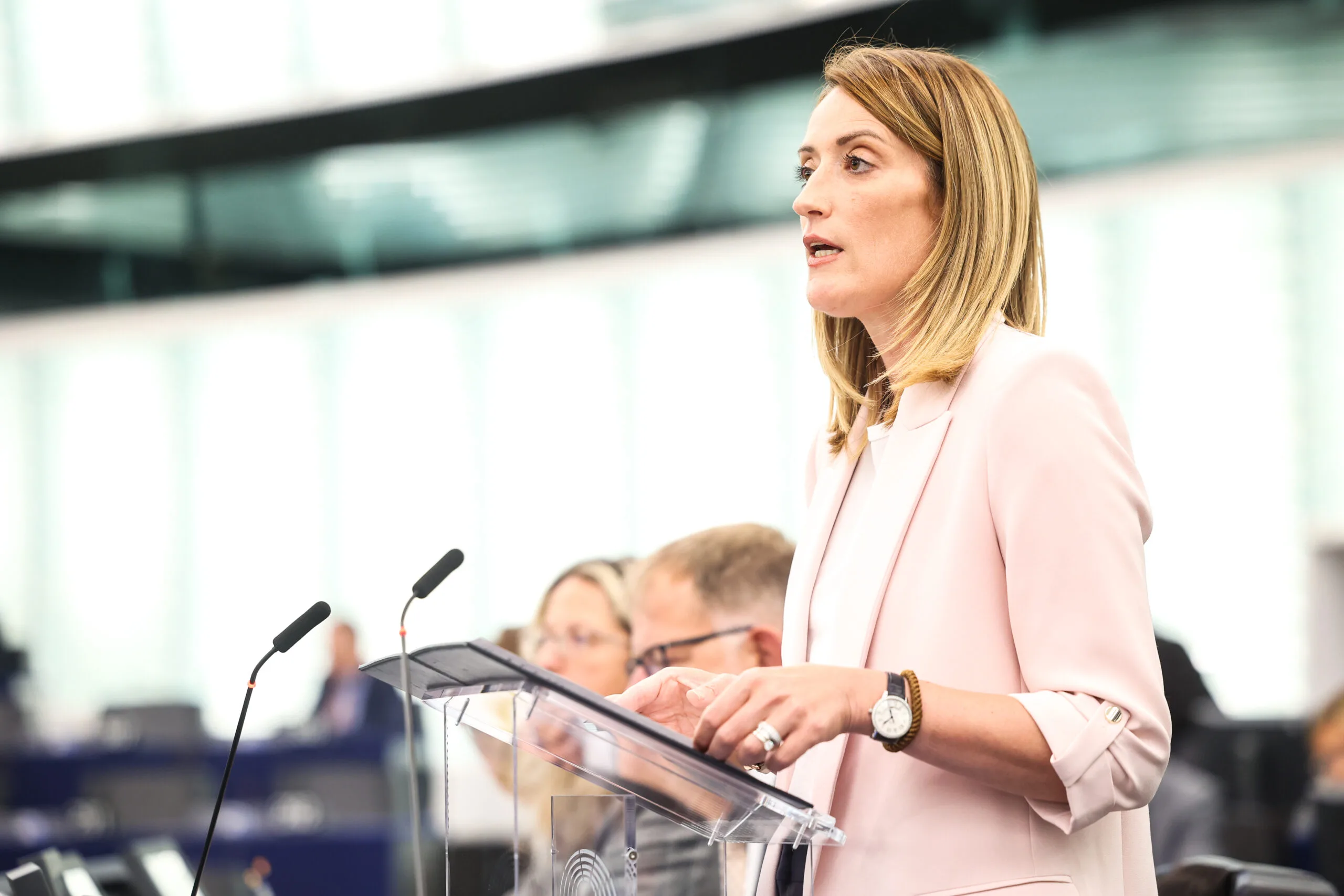Brussels – Two years ago, the brutal murder of a young woman by police forces triggered the largest protest movement since Ayatollah Khomeini turned Iran’s monarchy into a theocratic regime in 1979. September 16, 2022, “a date that will forever remain in infamy,” said the president of the European Parliament, Roberta Metsola, who wished to open the plenary session of the European Parliament by paying tribute to Mahsa Amini.
“I would like to reiterate now that the European Parliament is proud to stand with those brave and rebellious women and men who continue to fight for equality, dignity, and freedom in Iran,” the EU leader continued. The 22-year-old woman was arrested by the morality police in Tehran for not wearing her hijab properly and died while in the custody of security forces. In the first 200 days of protests unleashed after her death alone, according to Iran Human Rights, at least 537 protesters were killed at the hands of police forces. In December 2023, The European Parliament symbolically awarded Mahsa Amini with the Sakharov Prize for Freedom of Thought.

“Today, we honour the legacy of Mahsa Amini, our Sakharov Prize 2023 winner, and all those who paid the price for freedom. The European Parliament remembers here today and always,” Metsola concluded her remarks. The repression of the “Women, Life, Freedom” movement by the regime of the “butcher of Tehran” Ebrahim Raisi, the Iranian president who was killed in a helicopter crash last May, “has caused hundreds of deaths, thousands of unjust detentions and harm, as well as severe restrictions on freedom of opinion and expression and other civil liberties,” the EU High Representative for Foreign Affairs, Josep Borrell, recalled in a note.
The EU diplomacy chief pointed the finger at the “disproportionately harsh sentences, including the death penalty, against protesters.” Those responsible for the crackdown have been progressively hit by ten European sanctions packages, which—as by Borrell last year—have had no effect. On the contrary, in Iran, executions have soared and control over the lives of the civilian population, especially women, has tightened. “The EU takes this opportunity to reiterate its strong and unequivocal opposition to the death penalty at all times, in all places and under all circumstances,” and recalls that “under international law, the prohibition of torture is absolute.”
Borrell called on Iran’s new president, reformist Masoud Pezeshkian, to “eliminate, in law and practice, all forms of systemic discrimination against all women and girls in public and private life and to adopt gender-responsive measures to prevent and ensure the protection of women and girls against sexual and gender-based violence in all its forms.”
From Tehran’s prison, the appeal of the Nobel Peace Prize winner, Narges Mohammadi, arrived in the West. In a letter made public today, she pleaded with the UN to rush to the aid of the Iranian people because “two years after Mahsa Amini nothing is as it was before.” According to the human rights activist, “the people are feeling the biggest change in their beliefs, lives, and society. A change that, while it has not yet toppled the Islamic Republic regime, has shaken the foundations of religious tyranny.” This is why it is no longer time for international institutions to “observe, but to take active action.”
English version by the Translation Service of Withub






